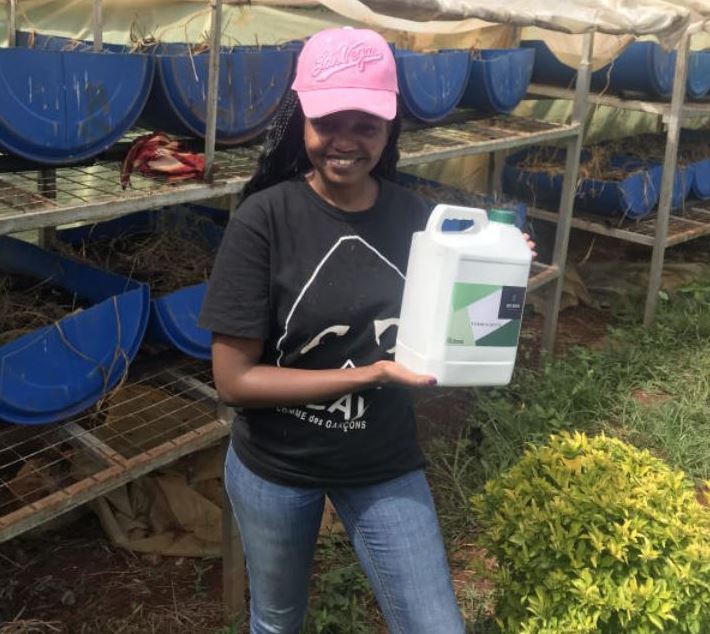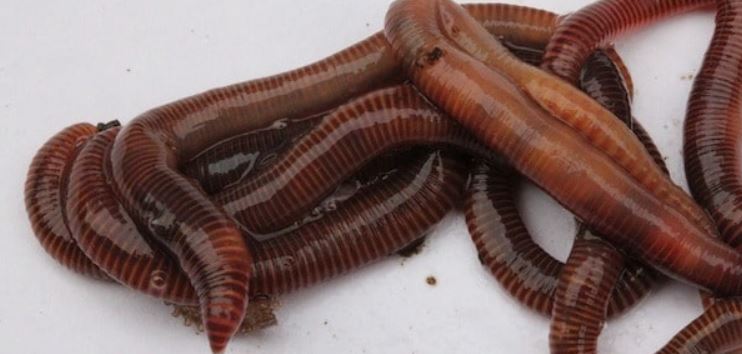
Ms Mwendwa farms worms and harvests ‘worm juice’, also known as ‘liquid gold’, at the family-owned Mt Zion organic farm in Machakos County.
The vermiculturist spoke to The Nairobian about her unique and lucrative agribusiness.
Tell us about a worm farm…
I describe a worm farm as a compost that’s full of live worms that feed on organic household waste.
How much capital did you need to venture in this business?
Well, for the worm farm alone, not including other ventures on the farm, we started with Sh100,000. We got our starting stock from JKUAT. We bought 25kgs of worm compost (soil with worms) at Sh2,500 per kg. That was Sh62,500. We breed our worms in plastic beds needed to buy 220-litre drums in order to make them. Our dad gave us the starting capital. It is family-owned.
Is this business what you take for a full-time job?
Absolutely Yes. The beauty of our products is that they are organic. The cost of production is not on the higher end for vermiculture (worm farming) and the returns are good because we have a very good product, our clients are always coming back for more. We produce large quantities, and with the other ventures on the farm, it is a lucrative business.
Where do you get your worms from?
Currently, we don’t need to get worms from anywhere. We have grown our farm, significantly, that we are suppliers of worms.
What is worm juice? Take me through the process of harvesting it?
Worm juice is the liquid collected from a worm farm. Its official name is vermiliquid or worm tea. It has also been dubbed “liquid gold” because it contains billions of microbes that are really good for your crops and soil. It’s pretty easy to make the juice. You need worm compost, which you feed with organic waste mostly from the kitchen. Then you hydrate the compost by adding water to it. We do it twice a week. The amount of water would depend on the size of the compost but make sure the compost isn’t waterlogged. That’s about all you need to do. The worms literally do the rest.
Who are your clients?
Anyone with a farm that grows vegetables, maize, beans, and fruits is our client. Vermiliquid is great for most crops.
How much do you sell the worm juice and how do you package it?
We sell both worms and vermiliquid. A 1kg bag of worm goes for Sh2,500 and the great thing about our compost is it has a high concentration of worms, not soil. The worm tea is packed in 1 litre, 5 litres, 10 litres,20 litres, 100 litres and above 100 litres. For retail, we sell a litre at Sh380 while anything over 100 litres goes for Sh280.
This sounds like a not-so-familiar idea, what is the response from your clients?
Only a few farmers have heard of or even used vermiliquid in their farms. When we realised this, we decided to give out free samples to the local farmers to try out in their farms and feedback was positive. And they came back for more. This time to buy.
Apart from worm juice what other services can be offered at your farm?
Mt Zion organic farm is located in Kamutonga Gardens, Kangundo sub-county in Machakos. We have dairy cows..around 30. The dairy section is managed by our mom. We also rear rabbits and collect their urine which is rich in ammonia. We currently have about 74 rabbits. Our dad is restructuring the rabbit section in order to increase the urine collection to about 400 litres a week. Urine collection is much slower than worm juice collection. Currently, our dad is constructing structures for organic fertilizer production (granulated), whose ingredients will be all organic and including rabbit urine as well as worm juice.
You insist that this is 100 per cent organic product…
Yes. It is. We only use organic kitchen waste and water, as well as cow dung and banana leaves as additives to the compost.
Why should farmers consider worm juice instead of the normal fertilizer?
It enriches nutrients concentration and water retention ability of the soil, it ensures negatively offensive chemicals which weaken soil nutrients are grossly reduced, ensures fastening of growth by giving nutrients through both the leaves and roots.
How old is the business? What has been your biggest challenge so far?
The farm is about five years old but the worm business is about two years old. We started at the end of 2018. Our biggest challenge since we began was the fact that a lot of farmers had not heard of worm juice. Capital to expand the business to meet the demand is also a challenge.
What is the process of mixing the juice with soil? Do you advice farmers on how to use it?
Worm juice should be diluted. We advise farmers to use about 250mls for a 20 l jerrican of water.
What are your future plans?
We intend on growing exponentially, being able to supply organic fertilizer, both granulated as well as liquid, within all of Kenya as well as the foreign market.







